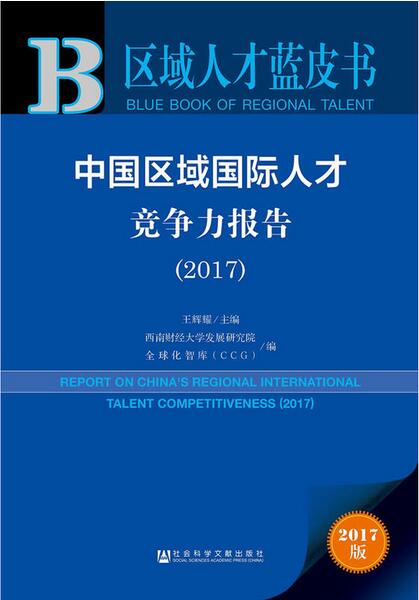CCG长期关注国内政策与改革研究,在中国开放指数、区域与城市、湾区经济、城乡一体化等多方面均提出建设性政策建议。
-

魏建国:中国新改革开放措施将出 自贸港成最大惊喜
专家简介
2018年2月24日 -

北京国际人才生活指数 | CCG研究
2017年12月15日 -

许振凌:三亚将以最好的资源与服务吸引最好的投资
许振凌,海南省三亚市副市长
2017年11月20日 -

He Weiwen:Regional disparity to narrow through technology, reform and opening-up
He Weiwen, a senior fellow at Center for China and Globalization(CCG).
2017年10月26日 -

Harvey Dzodin: Guangzhou goes global
The Guangzhou Canton tower at night China took another giant step in going global again by beginning the hundred-day countdown to the renowned Fortune Global Forum (FGF) to be held December 6th to 8th with the CEOs of the world’s most prestigious companies in attendance. Perhaps it’s no coincidence that Guangzhou’s leaders successfully won the bid to host the Forum as trade and commerce are in its very DNA. Long before the 21st century Maritime Silk Road was announced in 2013, this storied city, once known as Canton, with a history of more than 2,200 years had its own Maritime Silk Road for longer than a millennium. China’s third largest city has a rich past, an increasingly prosperous present and a bright future as the pearl of the Pearl River Delta. Winning the FGF is important to Guangzhou, Guangdong Province and all China because for three days, not only will the eyes of the world will be focused on the proceedings but global business leaders will be able to see first hand how Guangzhou has matured into a world city not only famous for the twice-yearly Canton Fair, WeChat and NetEase, but increasingly as a high-tech hub leader in the next generation of IT in fields such as artificial reality, virtual reality, and voice recognition, in addition to biotechnology. In fact, 13 of China’s 50 most innovative companies are Guangzhou-based. And Forbes China List of Best Cities for Business has been led by Guangzhou for five of the last six years. The theme of the FGF is “Openness and Innovation: Shaping the Global Economy.” Guangzhou leaders have conducted roadshows to promote the FGF in more than a dozen world cities. While common in private enterprise, to me this shows the foresight of leaders to maximize participation and publicity for the Forum and its host city. Guangzhou, the world’s fastest growing megacity according to the UN Development Program, has set its sights high. According to Mayor Wen Guohui : “The opening of the 2017 FGF in Guangzhou represents the recognition of the city’s socioeconomic development and expectation of our beloved city. We will strive to create a constructive platform for dialogue and cooperation for all participants to explore the theme of openness and innovation, which in turn will bring about a new momentum to world economic growth and contribute to shaping the global economy.” Guangzhou was the starting-point of the Maritime Silk Road’s South China Sea Route, crossing the Indian Ocean and countries around the Persian Gulf. Goods traded consisted mainly of silk, china and tea, while imports included a variety of spices, flowers and glass. The route was first used in the Qin and Han Dynasties, and grew in popularity from the Three Kingdoms Period (220-280) to the Sui Dynasty (581–618). I first visited Guangzhou in 1988, but like most of China, it looked and felt like it could have been centuries earlier. When I next returned in 2004, it was a vibrant trading city. And to host the Asian Games in 2010, Guangzhou had a complete makeover of parks, sports facilities and the city’s new landmark 600 meters high modernistic Canton Tower. I was impressed by the hundred-day countdown ceremony for the Fortune Global Forum for two main reasons. First, government leaders showed that it could plan for any contingency when it moved the venue on 24 hours notice from a tourist boat to watch the countdown begin on the surface of the Canton Tower to inside the tower itself due to Typhoon Pakhar. What most impressed me was that virtually the entire mercifully brief ceremony was given over to inspirational speeches by several teenage Guangzhou Citizen-Messengers who personally invited global business titans to Guangzhou. They clearly are future leaders who will soon take over piloting their city into its bright future, continuing on the path of globalization Guangzhou has been following for more than 2,200 years. About Author Dr. Harvey Dzodin, a non-resident researcher of the Center for China and Globalization(CCG). He was vice president of the ABC TV Network in New York and Legal Counsel in the Jimmy Carter administration.
2017年9月7日


